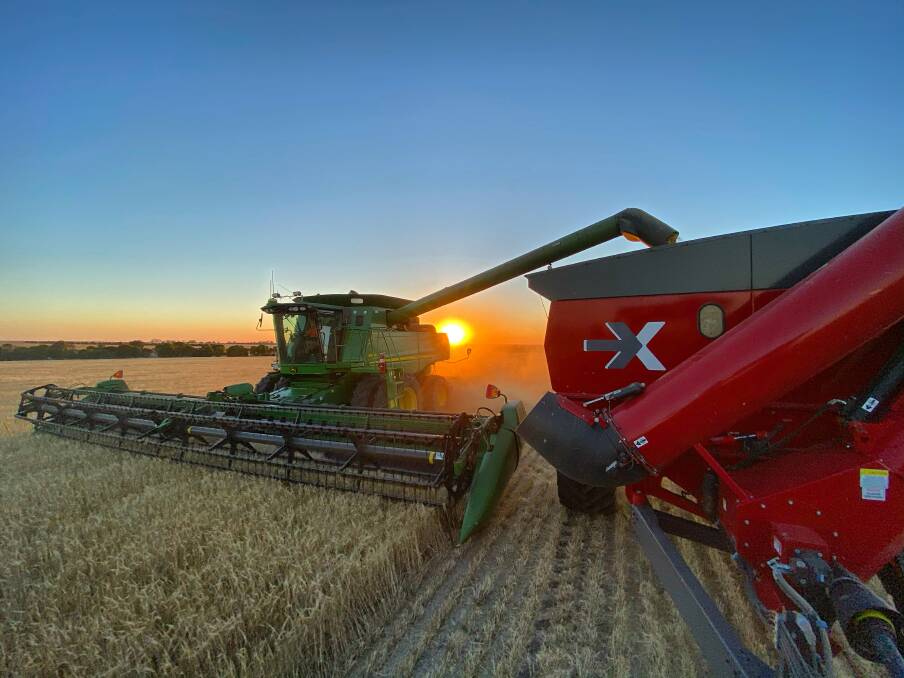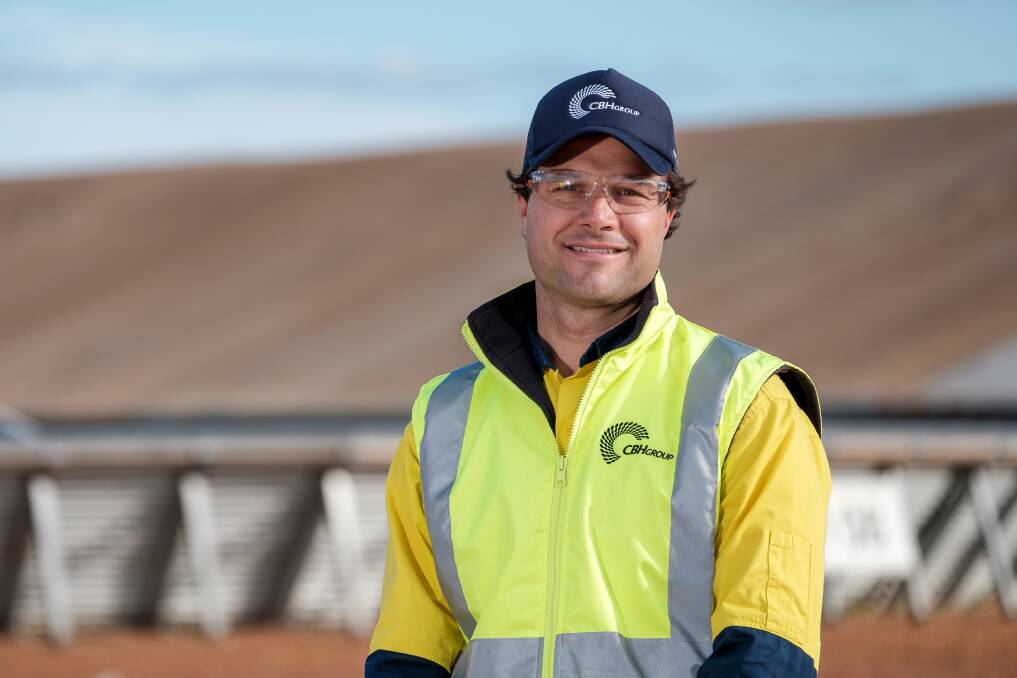
IN response to estimates of a 19.63 million tonne harvest, CBH Group has brought forward its planning for the busy harvest period and is currently a month ahead of where it would usually be.
Subscribe now for unlimited access to all our agricultural news
across the nation
or signup to continue reading
Key parts of that planning include the need for an additional 1mt of emergency storage and an early start to the recruitment of casual workers for the harvest period.
CBH acting chief executive officer Ben Macnamara said ultimately they're forecasting that the 2021/22 harvest would be well above average.
"With a big crop coming at us, it's more important than ever to get harvest estimates in and Paddock Planner is a key part of that," Mr Macnamara said.
"We've probably got roughly a third of our estimates in so far and we would like to see that significantly increase as it gives the best chance at optimising segregations around the State and gives us an understanding of where we may need additional storage.
"Given the expected volumes, this year it looks like we could build in excess of 1mt of emergency storage and we try to match the sites that storage is built at with the estimates that come through from Paddock Planner."
Building that extra storage goes further than just construction, with CBH working with local governments on development applications for where it would like to build the extra capacity this year.
Additionally, it is also seeking to acquire more equipment, particularly drive-over grids, tarpaulins and testing equipment, which would support frontline teams in receiving the harvest safely and efficiently.
"Unlike other years, the entire State has had a very good start and good rainfall throughout the growing season to date," Mr Macnamara said.
"We do have a gut feel for where additional storage is likely to be needed and we have identified about 14 sites, so we will get those prepared and as the season progresses we will pull the trigger on them as and when they're required.
"There is a period to go and a number of risks still involved, so we need to get our way through the frost period and hopefully have a good finish."
From a labour perspective, CBH launched its harvest recruitment campaign roughly a month earlier than it normally would and has been working proactively in different areas to identify enough staff to assist during harvest.
"Given the world that we're operating in, whether that be lockdowns or access to labour, I think it's prudent to be ahead of time," Mr Macnamara said.
"Given some of the challenges that we're facing in the months ahead, we want to be really proactive with the way we're planning for harvest."

CBH shipping stem
THE CBH Group has shipped more than 11 million tonnes to date this year, however the co-operative has still been experiencing supply chain challenges.
Those challenges mainly stem back to the shortage of train and truck drivers which has restricted CBH's ability to get grain from the country to the four ports in a timely manner.
CBH acting chief executive officer Ben Macnamara said the Kwinana supply chain had been the most affected in terms of performance.
"That's the result of the cumulative impact of the weather events earlier in the year, but also the shortage of train drivers in particular as 95 per cent of grain that goes into Kwinana is via rail, so we're continuing to see some lengthy delays," Mr Macnamara said.
"Geraldton and Esperance are still experiencing some challenges and we're seeing variable performances there - some closer to our expectations and some not so, so we're continuing to monitor those ports closely.
"The Albany supply chain was impacted about two weeks ago by the significant rainfall which washed away a lot of railway lines and impacted our ability to get tonnes to port, but we've now put in some remediation plans to minimise the ongoing impacts there."
The extra time taken to get grain to port has caused ongoing delays to vessel turnaround times, with the demurrage costs still an ongoing issue.
"It's a difficult number to calculate, we're not privy to all of the charter party terms that each of the customers enter into, so demurrage is a number which is difficult for us to give," Mr Macnamara said.
"When it comes to outloading we will be working with our road and rail providers and also ensuring we've got sufficient drivers.
"There is a shortage of labour in the State, while we're doing everything possible to manage that situation, I think challenges will persist particularly with a large harvest expected at the end of the year."


